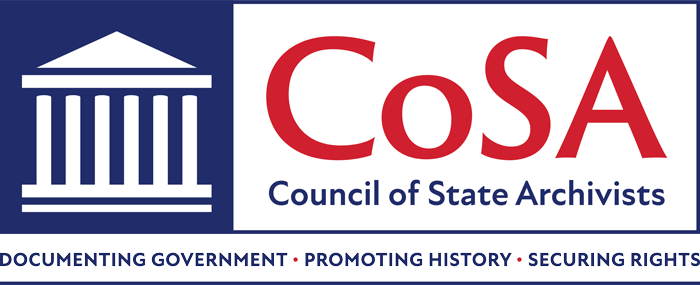Affinity/User Groups
Archivists and America's 250th Commemoration
The semiquincentennial of the United States of America provides a unique opportunity to reflect on the origins of our democratic republic and recognize the evolution of our country from its origins to the present day. Entrusted with the collection and preservation of the historical record, archival institutions seek to support:
- commemorations of the creation of the United States,
- reflections on how the creation of the United States has responded to societal, environmental, political, and economic change, as well as how the state has become an agent of some of that change, and
- explorations of our history as a society of diverse communities who have worked to create a more perfect union.
The records and documents we hold are written by those who were present at the time of change, reflecting their thinking and reasons for continuing to move the experiment of our democracy forward.
Our democratic republic was initiated with the drafting of the Declaration of Independence in 1776 and fully formed with the adoption of the Constitution in 1789. Since that time, our country has evolved in every way imaginable:
- Our population has grown to be the most diverse in the world;
- We have established and eliminated institutions that have changed business, society, and the planet itself;
- We have developed the land that forms our country and sought ways to protect it for future generations;
- We have responded to demands for increased rights and protections with revised statutes and amendments to the Constitution.
Archival repositories in the United States range from large government institutions to small private collections, and from academic archives to repositories of business. These institutions collect, preserve, and make available the essential evidence of the story of the United States and its people. Without these repositories, it would be impossible to interpret the way our country has developed.
Download the Archivists and America's 250th Commemoration document
America250 Resources
American Association for State and Local History (AASLH)
National
What is a SHRAB?
The State Historical Records Advisory Board (SHRAB) is the central advisory body for historical records coordination with each state and for National Historical Publications and Records Commission (NHPRC) state and local records projects within the state. [NOTE: "State" in this context includes the District of Columbia and the territories of the United States.] Many state archivists serve as their state’s SHRAB coordinator.
SHRABs are authorized under federal regulations governing the National Historical Publications and Records Commission (36 CFR Part 1206). The primary responsibilities of the SHRABs are to:
- Serve as the central advisory body for historical records coordination within the state.
- Develop, revise, and create a plan for historical records in the state.
- Provide assistance in reviewing grant proposals.
Several SHRABs have undertaken projects for statewide surveys, public awareness, education and training, and regrants supported with NHPRC funds.
The NHPRC has a Manual of Suggested Practices for SHRABs. The manual is currently under revision.
An important source of support for SHRAB-sponsored projects has been NHPRC's State Board Programming Grant program, to support the SHRABs in strengthening historical records programs in the states.
State Historical Records Advisory Boards (SHRABs): A Statistical Report (2013) provides contextual information about SHRABS.
If you have any questions about the operation of SHRABs or NHPRC programs, contact your state coordinator or NHPRC staff.
Preservica is a digital preservation and access solution available in both a cloud hosted and on-premise edition. The solution includes a comprehensive suite of OAIS (open archival information system) compatible workflows for ingest, management, storage, access and long-term preservation of digital content.
Is this a complete system, a service or a tool?: System, Service
Software Type: Proprietary
URL for Resource: https://preservica.com
Cost: Varies
Creating body / Developer / Publisher: Preservica (Name changed from Tessella in 2014)
Date of Creation: 2012
Date of Latest Revision: 2021
Other Notes: Software type is proprietary, however many open source tools are incorporated into the system. Preservica also has an active User Group.
Topics: Cloud Computing
Institutional Implementation: Kentucky Department for Libraries and Archives - since Jan 2013. Archives of Michigan - since March 2013. Others listed on product site or available upon request.
A discussion forum especially for those who work at or with our territorial archives (American Samoa, Guam, Northern Marianas, Puerto Rico, US Virgin Islands).
Launching in 2025, this is a user group specifically for those in government archives that are users of APPX and AXAEM systems. The group will set its own meeting schedule and agenda with an opportunity to invite the experts from APPX to join several times each year to address specific questions and/or concerns.
A loose gathering of archivists in government settings who find that coding is a large part of their work. Meeting on a schedule set by the group, participants often share codes, trouble shoot questions, and work through macros.
Get Involved!
Many of CoSA's Affinity Groups are open to both individuals that work at CoSA member institutions and colleagues in other settings. Some may be limited to members-only. If there is a topic of interest to you that is not listed, let us know. Most of our Affinity Groups have been launched by our member community to meet their interests and professional needs.
